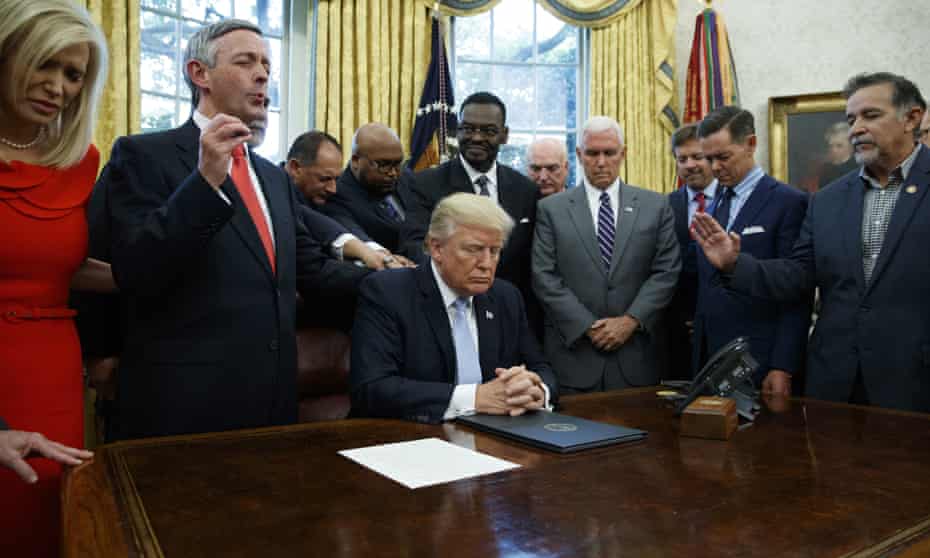S. Detrow, G. J. Sanchez, & S. Handel
npr.org
Originally poste 8 Aug 23
Here is an excerpt:
What's the big deal?
According to Moore, Christianity is in crisis in the United States today.
- Moore is now the editor-in-chief of the Christianity Today magazine and has written a new book, Losing Our Religion: An Altar Call For Evangelical America, which is his attempt at finding a path forward for the religion he loves.
- Moore believes part of the problem is that "almost every part of American life is tribalized and factionalized," and that has extended to the church.
- "I think if we're going to get past the blood and soil sorts of nationalism or all of the other kinds of totalizing cultural identities, it's going to require rethinking what the church is," he told NPR.
- During his time in office, Trump embraced a Christian nationalist stance — the idea that the U.S. is a Christian country and should enforce those beliefs. In the run-up to the 2024 presidential election, Republican candidates are again vying for the influential evangelical Christian vote, demonstrating its continued influence in politics.
- In Aug. 2022, church leaders confirmed the Department of Justice was investigating Southern Baptists following a sexual abuse crisis. In a statement, SBC leaders said: "Current leaders across the SBC have demonstrated a firm conviction to address those issues of the past and are implementing measures to ensure they are never repeated in the future."
- In 2017, the church voted to formally "denounce and repudiate" white nationalism at its annual meeting.
What is he saying?
Moore spoke to All Things Considered's Scott Detrow about what he thinks the path forward is for evangelicalism in America.
On why he thinks Christianity is in crisis:
It was the result of having multiple pastors tell me, essentially, the same story about quoting the Sermon on the Mount, parenthetically, in their preaching — "turn the other cheek" — [and] to have someone come up after to say, "Where did you get those liberal talking points?" And what was alarming to me is that in most of these scenarios, when the pastor would say, "I'm literally quoting Jesus Christ," the response would not be, "I apologize." The response would be, "Yes, but that doesn't work anymore. That's weak." And when we get to the point where the teachings of Jesus himself are seen as subversive to us, then we're in a crisis.







